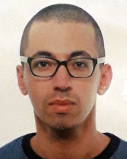Keynotes speakers
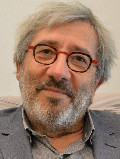
Patrick FLANDRIN
Emeritus CNRS Senior Scientist
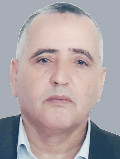
Youssef OUKNINE
Member of the Hassan II Academy of Sciences and Technology
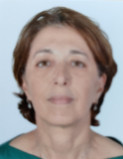
Amel BENAZZA-BENYAHIA
Professor at SUP’COM, Tunis, Tunisia
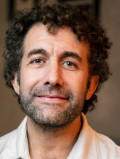
Karim LEKADIR
Director of the Artificial Intelligence in Medicine Lab at the University of Barcelona (BCN-AIM)
Workshop speakers
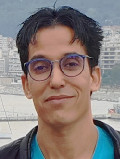
Mohamed YOUSSFI
Professor Researcher in Department of Mathematics and Computer Science, ENSET, Hassan II University
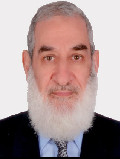
Hafideh ALSAMARRAI
President and CEO of Global Business Development and Growth Inc.
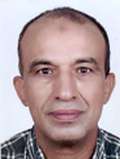
Ahmed TAIK
Full professor of applied mathematics at FST-Mohammedia, University Hassan II Casablanca
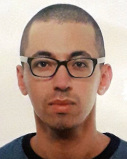
Omar ABDEDDAIM
Omar ABDEDDAIM – Data Engineer in Cloud Computing and Data Science Technical Director at Cloudlink LLC
Patrick FLANDRIN – Emeritus CNRS Senior Scientist
Youssef OUKNINE – Member of the Hassan II Academy of Sciences and Technology
Amel BENAZZA-BENYAHIA – Professor at SUP’COM, Tunis, Tunisia
Karim Lekadir – Director of the Artificial Intelligence in Medicine Lab at the University of Barcelona (BCN-AIM)
Mohamed YOUSSFI – Professor Researcher in Department of Mathematics and Computer Science, ENSET, Hassan II University
Hafideh ALSAMARRAI – President and CEO of Global Business Development and Growth Inc.
Ahmed Taik – Full professor of applied mathematics at FST-Mohammedia, University Hassan II Casablanca
Omar ABDEDDAIM – Data Engineer in Cloud Computing and Data Science, Technical Director at Cloudlink LLC
Keynote Speaker I – Tuesday 21 May 10:00 – Targa Room
Patrick FLANDRIN – Emeritus CNRS – Senior Scientist
“Signals, images and data everywhere, from science to our daily lives”
We live in a world of ever-increasing flows of signals, images and data. Behind this abundance lies a science in its own right which is omnipresent in our daily lives, just as it is an indispensable component of many of the most fundamental scientific discoveries. Whether it’s for acquiring, compressing, storing or exchanging images, voice or data, a smartphone is an emblematic example; and the recent discovery of the first gravitational wave is, beyond the technological prowess of the instrument, the fruit of the development of advanced algorithms for detecting extremely weak signals. We will discuss the central role that “data sciences” now occupy in a scientific landscape undergoing profound renewal, as well as their implications for society and their impact on both energy and the environment.
Keynote Speaker II – Tuesday 21 May 14:30 – Targa Room
Karim LEKADIR – Director of the Artificial Intelligence in Medicine Lab at the University of Barcelona (BCN-AIM)
“Trustworthy artificial intelligence for accessible healthcare in low-resource settings”
Artificial intelligence (AI) is widely regarded as one of the most promising and disruptive technologies for future healthcare. Despite continued advances in recent years, a major limitation of current AI developments is that they have overwhelmingly, and almost entirely, targeted applications in high-income countries. There is a concern, if the current trend continues, that AI will increase the already pronounced inequalities in global health. This talk will present some of the emerging initiatives for the developments of artificial intelligence in resource-limited settings, where there is a lack of computational resources, clinical workers and retrospective data for training machine learning models. First, the concept of trustworthy AI will be presented including guiding principles for the design, development and evaluation of future AI solutions, to ensure they will be trusted,
accepted, deployed and adopted by the local stakeholders and local communities. The talk will then discuss the need for new AI approaches that are inclusive, i.e. (1) affordable for low-resource healthcare centers, (2) scalable to under-represented population groups, and (3) accessible to minimally trained clinical workers. This will ensure millions of patients from low-to-middle-income countries are not excluded from the benefits of artificial intelligence in future healthcare.
Keynote Speaker III – Wednesday 22 May 9:00 – Targa Room
Youssef OUKNINE – Member of the Hassan II Academy of Sciences and Technology
“Random Walk in Financial Markets”
The presentation will provide an overview of financial markets, delving into the integral role of mathematics, particularly stochastic processes, in the decision-making process. It provides a comprehensive overview of financial markets, encompassing various instruments and trading mechanisms. Special attention is given to the options market, which includes European, American, and exotic options, each with unique characteristics and terms. Within this context, stochastic calculus and martingale theory emerge as essential tools for pricing and hedging options. These mathematical frameworks enable investors to determine fair values for options and manage associated risks effectively. Crucially, the presentation highlights the importance of the absence of arbitrage opportunities in ensuring market efficiency and consistency with mathematical models.
Keynote Speaker IV – Wednesday 22 May 15:00 – Targa Room
Amel BENAZZA-BENYAHIA – Professor at SUP’COM, Tunis, Tunisia
“Content-Based Retrieval of Stereoscopic Images by Statistical and Deep Learning Approaches”
Content-based image retrieval (CBIR) uses image content features to search and retrieve digital images from a database. With the growing interest in using the three dimensional information in various application, it becomes necessary to design efficient CBIR systems well adapted to the indexing of such databases. In this talk, the focus is placed on stereoscopic images which are composed of pairs of views captured by two adjacent cameras and, depth maps. As the retrieval performance of a CBIR system crucially depends on the feature representation, two families of feature extraction methods are presented. The first one concerns statistical-based retrieval approaches, designed to capture the cross-view redundancies as well as the correlation between the texture and depth information. The second family of methods aims at learning the relevant features outputted by deep neural architectures. Experimental results are discussed. The proposed methods are tested through experiments and their results are discussed.
Workshop I – Tuesday 21 May 15:20 – Menara Room
Ahmed TAIK – Full Professor of Applied Mathematics, FSTM, Hassan II University of Casablanca
“Dynamical Systems in Reaction-Diffusion and Biology Problems”
This talk explores the application of dynamical systems theory, particularly in analyzing reaction-diffusion problems, emphasizing its relevance in biological systems. Reaction-diffusion equations describe how quantities change over time due to reaction processes and diffusion. Dynamical systems offer a systematic approach to understanding the behavior of patterns and underlying mechanisms in spatial models. In biology, these systems model processes like epidemiology. By employing dynamical systems theory, one can analyze stability, bifurcations, and spatial dynamics, providing insights into complex biological patterns. Key concepts include stability analysis, bifurcation theory, and phase space dynamics, offering promise for understanding and intervening in biological systems effectively.
The tools to install for participants: Matlab
Workshop II – Wednesday 22 May 9:50 – Menara Room
Omar ABDEDDAIM – Data Engineer in Cloud Computing and Data Science, Technical Director at Cloudlink LLC
“Streamlining Document Analysis: Automated Feature Extraction and Splitting”
This project harnesses the power of AWS services to streamline document processing workflows. It utilizes AWS Textract to extract key information such as due dates, total amounts, payables to, and payable from documents. Using the retrieved information, documents are intelligently separated and named in a specific format based on the discovered characteristics. The processed documents are then stored in Amazon S3 for easy access and management. Additionally, the system generates detailed CSV reports summarizing the collected data for further study. The codebase has been rigorously developed with flexibility and scalability in mind, ensuring easy execution as an AWS Lambda function triggered by S3 events. This setup provides an efficient and automated solution for many documents management tasks, enhancing productivity and accuracy.
The tools to install for participants:
Technologies: Python, Docker, AWS CLI
Cloud Provider: AWS services (Amazon EC2, Amazon S3, AWS Lambda Function)
Provisioning: AWS CloudFormation
Monitoring: Amazon CloudWatch
Libraries: PyMuPDF, PIP, OpenCV, locale, datetime, re, fpdf, os, numpy, concurrent.futures, cv, logging.

